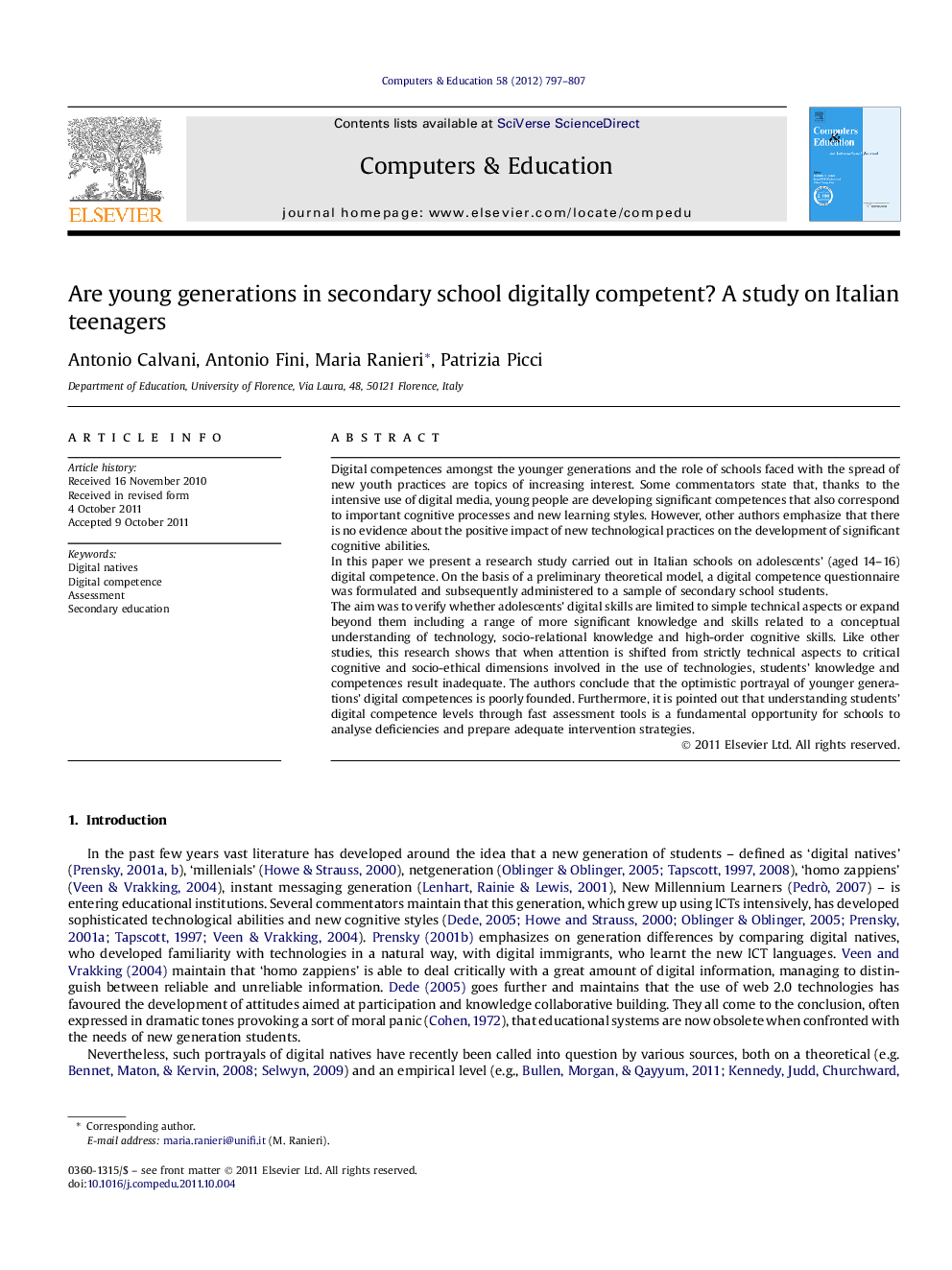| کد مقاله | کد نشریه | سال انتشار | مقاله انگلیسی | نسخه تمام متن |
|---|---|---|---|---|
| 348922 | 618207 | 2012 | 11 صفحه PDF | دانلود رایگان |

Digital competences amongst the younger generations and the role of schools faced with the spread of new youth practices are topics of increasing interest. Some commentators state that, thanks to the intensive use of digital media, young people are developing significant competences that also correspond to important cognitive processes and new learning styles. However, other authors emphasize that there is no evidence about the positive impact of new technological practices on the development of significant cognitive abilities.In this paper we present a research study carried out in Italian schools on adolescents’ (aged 14–16) digital competence. On the basis of a preliminary theoretical model, a digital competence questionnaire was formulated and subsequently administered to a sample of secondary school students.The aim was to verify whether adolescents’ digital skills are limited to simple technical aspects or expand beyond them including a range of more significant knowledge and skills related to a conceptual understanding of technology, socio-relational knowledge and high-order cognitive skills. Like other studies, this research shows that when attention is shifted from strictly technical aspects to critical cognitive and socio-ethical dimensions involved in the use of technologies, students’ knowledge and competences result inadequate. The authors conclude that the optimistic portrayal of younger generations’ digital competences is poorly founded. Furthermore, it is pointed out that understanding students’ digital competence levels through fast assessment tools is a fundamental opportunity for schools to analyse deficiencies and prepare adequate intervention strategies.
► We develop a digital competence (DC) assessment tool addressed to adolescents.
► We examine the types and levels of adolescents’ digital knowledge and skills.
► Considering simple technical aspects, adolescents result digitally skilled.
► Including the conceptual understanding of technologies, adolescents’ DC decrease.
► Increasing complexity with high-order cognitive skills, adolescents’ DC decrease.
Journal: Computers & Education - Volume 58, Issue 2, February 2012, Pages 797–807